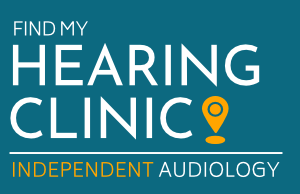How Untreated Hearing Loss Affects Your Brain and Memory

When most people think about hearing loss, they picture missed conversations, asking loved ones to repeat themselves, or turning up the TV a little louder than everyone else is comfortable with. But hearing loss isn’t just about your ears…it’s also about your brain.
A growing body of research shows that untreated hearing loss doesn’t simply make it harder to hear; it also puts extra strain on your brain, affects memory, and may even increase the risk of long-term cognitive decline. At Find My Hearing Clinic, the hearing care professionals at our independent hearing clinics want you to understand how closely connected hearing and brain health are, so you can take steps today that protect both your hearing and your future well-being.
The Link Between Hearing and the Brain
Hearing happens in the ears, but understanding happens in the brain. Your ears collect sounds, but it’s your brain that processes those sounds into meaningful words, music, and memories.
When hearing is reduced, your brain doesn’t get the whole picture. Instead, it must work overtime to fill in the gaps; guessing at words, straining to keep up, and using valuable brainpower to make sense of everyday conversations. This is called cognitive load, and when too much of your brain’s energy is tied up trying to hear, less is left for memory and thinking.
How Untreated Hearing Loss Affects Memory and Thinking
Over time, this constant strain takes a toll. When your brain is busy working to decode muffled or missing sounds, it has fewer resources available for storing information or recalling details later. That’s why many people with untreated hearing loss notice they forget things more often or struggle to follow instructions.
Scientific research confirms this. Studies show that untreated hearing loss is associated with quicker cognitive decline and may even increase the risk of developing dementia. Hearing loss in midlife is now seen as one of the most important modifiable risk factors for dementia. This is not to say that hearing loss is the only contributor to cognitive decline and dementia, but it is a considerable factor that can be modified through the treatment of hearing loss.
- On a day-to-day level, the effects of hearing loss on memory and thinking might look like:
- Forgetting conversations shortly after they happen
- Feeling exhausted after social gatherings
- Struggling to concentrate in noisy environments
- Losing confidence in your ability to keep up with fast-paced discussions
What may seem like “just a bit of hearing loss” can gradually affect your independence, memory, and overall quality of life.
The Role of Social Isolation
Another way untreated hearing loss affects the brain is through reduced social engagement. Many people begin withdrawing from conversations or avoiding social events simply because it feels too hard to keep up. This behaviour can gradually develop and show up in subtle ways such as thinking you no longer like noisy environments when in actual fact, you’re avoiding them because changes in your hearing make communication in those settings more difficult. Over time, you may even find yourself choosing to stay home more often.
It’s important to realise that staying socially active is critical for brain health. Interacting with others keeps your mind stimulated, your memory active, and your mood positive. When hearing loss pushes people into isolation, the brain is less challenged, which can speed up cognitive decline.
It’s not just about brain health, either. Social withdrawal can also lead to loneliness, frustration, and depression, further compounding the impact on memory and thinking. This is a slippery slope which can have profound effects on a person’s well-being.
Early Treatment Protects Brain Health
The good news is that there’s something you can do. Treating hearing loss early reduces cognitive strain and helps keep your brain engaged. Hearing aids and other solutions don’t just make sounds louder, they make communication clearer, easier, and less exhausting.
Modern hearing technology is discreet, comfortable, and highly effective. Research shows that using hearing aids can improve memory performance, increase focus, and may help slow the progression of cognitive decline.
Think of hearing aids as more than a way to hear better. They’re tools to keep your brain sharp, protect your independence, and allow you to stay fully connected to the people and activities you love.
What You Can Do Now
If you’ve noticed any signs of hearing loss such as turning up the TV, missing parts of conversations, or avoiding noisy environments, it’s worth having your hearing checked. A hearing test is quick, painless, and offers valuable insight into your hearing health. If you have a hearing loss, you can then make an informed choice regarding what to do next to reduce the consequences of your hearing loss.
At our independent hearing clinics, we believe in empowering people with information, not pressure. Our role is to help you understand your options and find solutions that suit your lifestyle, needs, and budget. We are here to support you in making the decision that is right for you and your long-term health.
By taking action now, you’re not just improving your hearing, you’re protecting your brain, your memory, and your overall well-being.
What Does This Mean?
Untreated hearing loss affects far more than your ears. It places extra strain on your brain, impacts memory, increases the risk of social isolation, and is linked to long-term cognitive decline. However, by treating hearing loss early, you can reduce that burden, keep your brain healthier for longer, and enjoy a more active, connected life.
Your hearing is too important to ignore. Take the first step to protect your hearing and your mind by booking a hearing test with your local hearing clinic today.
Contact your local independent hearing care professional and book an appointment at your local independent hearing clinic. You can find your local clinic through the Find My Hearing Clinic – Clinic Locator
